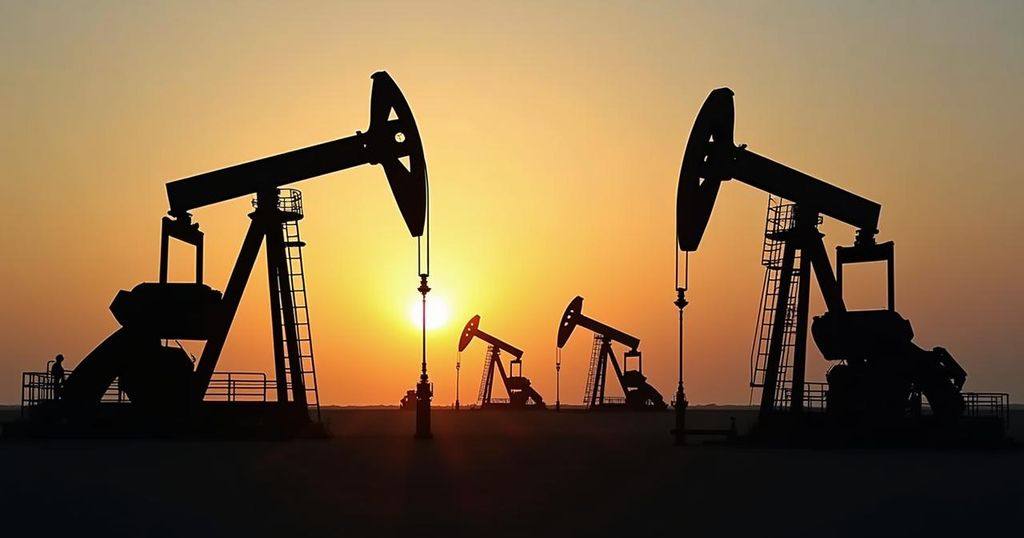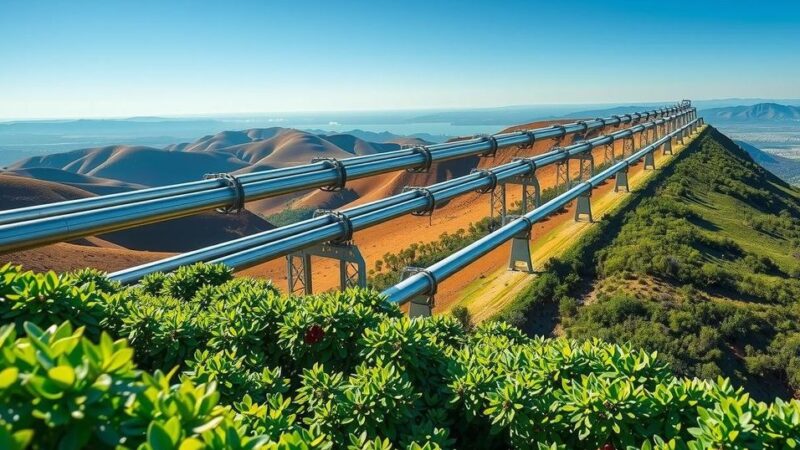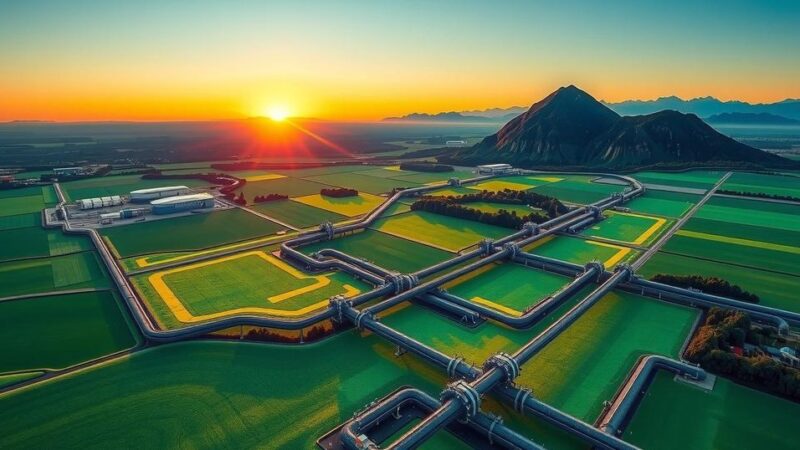Bolivia’s gas exports to Argentina ended on September 18, 2024, marking almost twenty years of trade. The cessation follows a significant decline in exports due to reduced demand and increased local production capabilities in Argentina. The country is now focusing on exporting its gas to neighboring nations and global markets while continuing gas supply to Brazil from Bolivia. Negotiations surrounding transit fees and alternative pipelines are ongoing.
Bolivia’s natural gas exports to Argentina officially ceased on September 18, marking the conclusion of nearly two decades of energy trade between the two nations, as confirmed by Yacimientos Petroliferos Fiscales Bolivianos (YPFB), Bolivia’s state-run gas company. Data revealed by Argentina’s gas regulator indicated that there were no longer any imports from Bolivia. Notably, Bolivia continues to supply gas to Brazil, although its exports to Argentina had significantly declined to just 2 million cubic meters per day, a small fraction of Argentina’s total consumption of 130 million cubic meters per day. The termination of these imports was originally scheduled for July, as per a 2022 agreement, but the countries extended this arrangement by two months due to a combination of unusually warm winter temperatures in the Southern Hemisphere and reduced demand for gas in Argentina. Enarsa, Argentina’s state energy firm, noted that this decision was feasible due to the current supply situation. Despite the stoppage of Bolivian gas exports, Chile continues to supply surplus liquefied natural gas (LNG) to Argentina via an alternative pipeline. Argentina’s energy sector is currently engaged in discussions with Brazilian companies to export natural gas from the Vaca Muerta shale formation by reversing the existing pipeline that traditionally transported gas from Bolivia to Argentina, aiming to alleviate regional supply challenges. However, initial proposals to alter the pipeline flow faced difficulties, particularly concerning Bolivia’s proposed tariffs for gas transit to Brazil, which were deemed excessive by Argentinian officials. Negotiations surrounding this matter have progressed slowly as alternative routing options are explored, including potential pipelines through Uruguay and Paraguay. Nevertheless, experts assert that reversing the current pipeline direction remains the most efficient method to guarantee Argentina’s gas supply for neighboring countries.
The cessation of gas exports from Bolivia to Argentina is a significant development in South American energy trade, particularly in light of Argentina’s ongoing energy shortages. Argentina has historically had a negative energy trade balance and has been focusing on enhancing its own production capabilities. Recently, Argentina has been nearing the completion of infrastructure projects aimed at allowing it to export gas to neighboring countries and participate in global LNG markets. With warmer weather and a consequent decrease in gas demand, the decision to halt imports from Bolivia was further facilitated, showcasing the shifting dynamics of energy supply in the region. The negotiations over tariffs for gas transit and the exploration of alternative pipeline options are crucial as Argentina seeks to stabilize its energy resources amid regional volatility.
In conclusion, Bolivia’s gas exports to Argentina have officially concluded after nearly 20 years, primarily due to decreased demand and the emergence of new energy infrastructure projects in Argentina. While Bolivia maintains its gas supply to Brazil, the end of this cross-border trade signifies a notable shift within South American energy dynamics. As Argentina seeks to address its energy deficits by exploring new exporting avenues, the focus will remain on negotiations regarding transit tariffs and potential pipeline reversals to facilitate gas flows to neighboring countries. These developments underscore the evolving nature of energy collaboration in the region as countries adapt to changing market conditions.
Original Source: www.worldpipelines.com






